#igbo nigerian history
Explore tagged Tumblr posts
Text




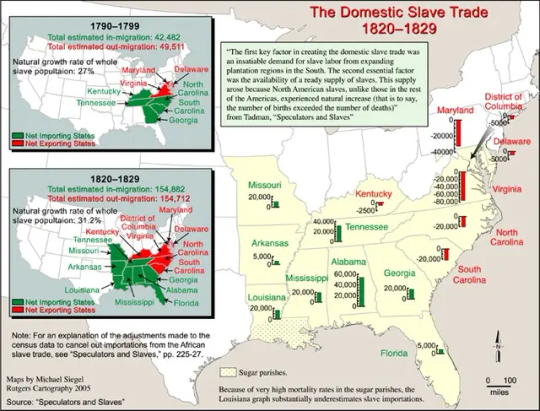
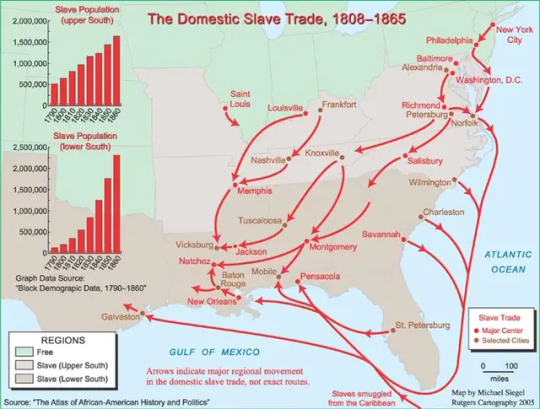

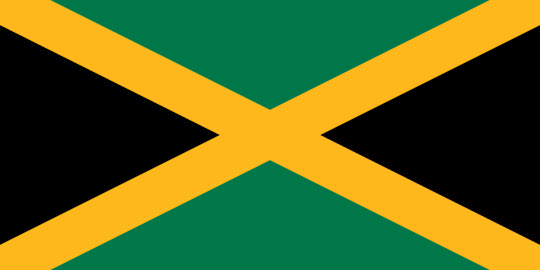
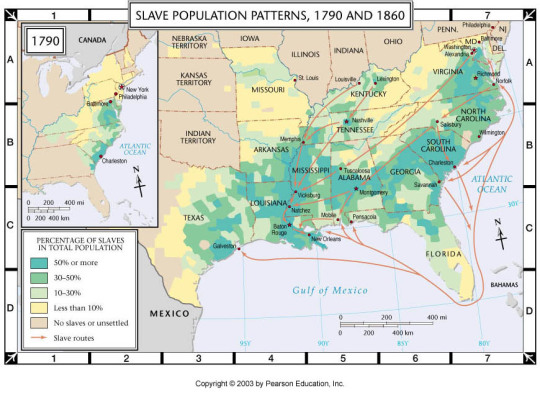


The Igbo in the Atlantic slave trade
Bussa, Barbadian slave revolt leader of Igbo descent
Edward Blyden, Americo-Liberian educator, writer and politician of Igbo descent
Paul Robeson, American actor and writer whose father was of Igbo descent
Aimé Césaire, Martiniquais poet and politician who claimed Igbo descent) argues that many of the slaves taken from the Bight of Biafra across the Middle Passage would have been Igbo. These slaves were usually sold to Europeans by the Aro Confederacy, who kidnapped or bought slaves from Igbo villages in the hinterland. Igbo slaves may have not been victims of slave-raiding wars or expeditions but perhaps debtors or Igbo people who committed within their communities alleged crimes. With the goal for freedom, enslaved Igbo people were known to European planters as being rebellious and having a high rate of suicide to escape slavery. There is evidence that traders sought Igbo women. Igbo women were paired with Coromantee (Akan) men to subdue the men because of the belief that the women were bound to their first-born sons’ birthplace.
It is alleged that European slave traders were fairly well informed about various African ethnicities, leading to slavers targeting certain ethnic groups which plantation owners preferred. Particular desired ethnic groups consequently became fairly concentrated in certain parts of the Americas. The Igbo were dispersed to colonies such as Jamaica, Cuba, Saint-Domingue, Barbados, Colonial America, Belize and Trinidad and Tobago, among others.
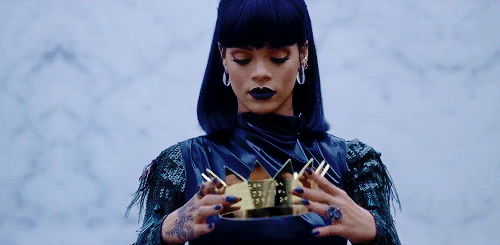
Rihanna is also Igbo
Colonial Nigeria
The establishment of British colonial rule in present-day Nigeria and increased encounters between the Igbo and other ethnicities near the Niger River led to a deepening sense of a distinct Igbo ethnic identity. The Igbo proved decisive and enthusiastic in their embrace of Christianity and Western-style education. Because of the incompatibility of the Igbo decentralized style of government and the centralized system including the appointment of warrant chiefs required for British system of indirect rule, the period colonial rule was marked with numerous conflicts and tension. During the colonial era, the diversity within each of Nigeria's major ethnic groups slowly decreased, and distinctions between the Igbo and other large ethnic groups, such as the Hausa and the Yoruba, became sharper.
The establishment of British colonial rule transformed Igbo society, as portrayed in Chinua Achebe's novel Things Fall Apart. Colonial rule brought about changes in culture, such as the introduction of warrant chiefs as Eze (indigenous rulers) where there were no such monarchies. Christian missionaries introduced aspects of European ideology into Igbo society and culture, sometimes shunning parts of the culture. The rumours that the Igbo women were being assessed for taxation sparked off the 1929 Igbo Women's War in Aba (also known as the 1929 Aba Riots), a massive revolt of women never encountered before in Igbo history.
Aspects of Igbo culture such as construction of houses, education and religion changed following colonialism. The tradition of building houses out of mud walls and thatched roofs ended as the people shifted to materials such as concrete blocks for houses and metal roofs. Roads for vehicles were built. Buildings such as hospitals and schools were erected in many parts of Igboland. Along with these changes, electricity and running water were installed in the early 20th century. With electricity, new technology such as radios and televisions were adopted, and have become commonplace in most Igbo households.
A series of black and white, silent films about the Igbo people made by George Basden in the 1920s and 1930s are held in the British Empire and Commonwealth Collection at Bristol Archives

#african#afrakan#kemetic dreams#africans#brownskin#brown skin#afrakans#african culture#afrakan spirituality#igbo#nigerian#british empire#jamaica#jamaican#barbados#igbo culture#igbo history#rihanna
45 notes
·
View notes
Text
This month in Hoodoo History: The Igbo Freedom Landing March
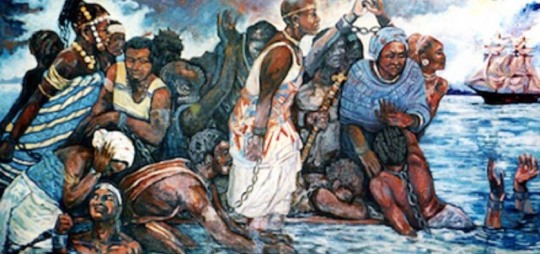
In May of 1803, 75 Igbo men & women chose freedom in death over a life of hell, spurring one of the largest mass suicides in the history of Maafa.
• In May 1803, a British slave ship called, The Wanderer, captured over a hundred Igbo men/women & other West Afrikan Peoples from present-day Nigeria and taken to Savannah, GA.
In Savannah, they were resold into Slavery to be worked to death on plantations along the Georgia coast. The price for each of their lives? $100. They were forcibly transported onto a ship called, the York that set sail for St. Simon's Island.
• During this voyage from Savannah to St. Simon's Island, 75 Igbo men & women rose up against their captors. They drowned the slavers, took control of the ship - grounding it in the Dunbar Creek.
At some point, the Igbo fled the ship. Led by their High Chief, a subset of the Igbo sang as they marched into a salt marsh of Dunbar Creek. One by one, they returned home in the face of a fate worse than death.
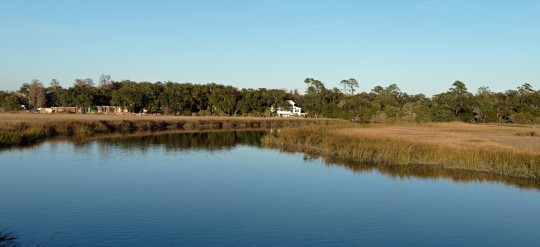
• This event that became known as, the Igbo Freedom Landing March, spawned enormous symbolism & folklore in the Afrikan Peoples and their descendants on this land. Many believe that the Freedom Landing and the nearby salt marshes in Dunbar Creek are haunted by the Spirits of the Igbo Peoples who drowned there. It is heralded as the first recorded Freedom March in U.S. history and has long since been a staple in Gullah-Geechee folklore, as the story of the Igbo Peoples who chose death over Slavery.
• Today, Igbo Landing is a nationally recognized historical site. It is located at Dunbar Creek on St. Simon's Island in Glynn County, GA.
• In September 2002, the Afrikan descendant community of St. Simon's Island, GA held a two-day commemoration of this event, including a procession to the salt marshes along Dunbar Creek where the mass suicide took place. They were represented by 75 Afrikan descendants across the country, Haiti, Brazil, & Nigeria. The attendees consecrated the site and did the collective work to elevate the restless Igbo spirits into healing and peaceful transition.
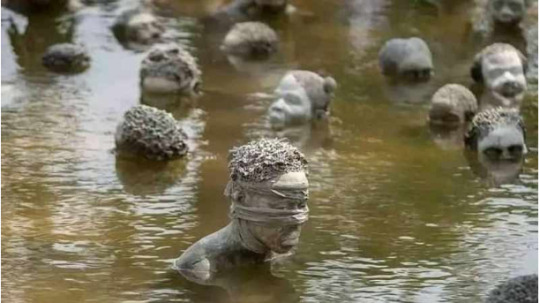
#hoodoo#hoodoos#atr#atrs#the hoodoo calendar#juju#igbo culture#igbo history#igbo#afrikan#igbo freedom landing March#black history#Hoodoo Folklore#west Afrika#Nigeria#Nigerian history#Georgia#Georgia history#Savannah#st simons island#african american folklore#Hoodoo History
147 notes
·
View notes
Text

4 notes
·
View notes
Text
One must also note the role of Harold Wilson's government in that war:
Wilson very much channeled the spirit of Churchill and Nixon in cynically encouraging a genocide while openly professing adherence to human rights and making an already horrific situation much, much worse.
#lightdancer comments on history#african history#cold war#black history month#nigerian civil war#igbo history#hausa history
3 notes
·
View notes
Text
Igbo Pottery: The Udu Drum
Igbo Pottery: The Udu Drum
How long has pottery been part of Igbo society? Pottery has been part of Igbo culture for centuries, with some of the earliest artefacts dating back to 2500 BC. The most well-known examples of Igbo pottery are the 9th-century findings from Igbo Ukwu, which include many ornate pieces. (Image Below: Globular vessel with everted rim, Igbo Ukwu, terracotta, 1000 BP) What is an Udu? An example of…

View On WordPress
#igbo#igbo pot#igbo pottery#igbo pottery history#igbo ukwu#nigeria#nigerian pottery#okwuid#the history of igbo pottery#the odoo pot#the udu of nigeria#udu
4 notes
·
View notes
Text
Breaking News: Emmanuel Iwuayanwu, President of Ohanaeze Ndigbo, Has Died
In a devastating turn of events for Nigeria and the Igbo community, Emmanuel Iwuayanwu, the President of Ohanaeze Ndigbo, has passed away. The news of his death, which has reverberated across the nation and beyond, has sent shockwaves through both political and cultural circles, marking the end of an era for a prominent leader whose impact was deeply felt in various spheres of Nigerian life. A…
#cultural advocacy#Emmanuel Iwuayanwu#Igbo leadership#national unity#Nigerian History#Nigerian news#Nigerian Politics#Ohanaeze Ndigbo#public service#socio-political impact#Touchaheart.com.ng
0 notes
Text
Exploring the Rich Culture of the Ibo People in Nigeria: A Comprehensive Guide to One of the Largest Single Ethnic Groups
Disclosing the Rich Tapestry of Igbo Heritage: An in-depth examination of Nigeria’s Dynamic Culture Nigeria’s Igbo people are an enthralling ethnic group with a rich history, colorful customs, and a significant influence on African culture. This essay explores the fundamentals of Igbo culture, looking at its traditions, historical foundations, and remarkable resilience in the face of adversity.…
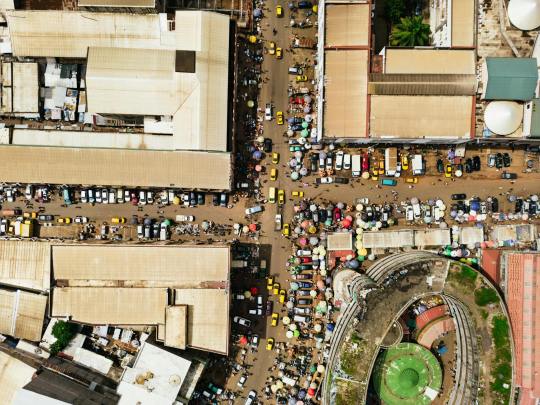
View On WordPress
#African heritage#Ibo people#Igbo culture#Igbo diaspora#Igbo history#Igbo language#Igbo traditions#LanguageXS#Nigerian Civil War#Nigerian ethnic groups
0 notes
Photo
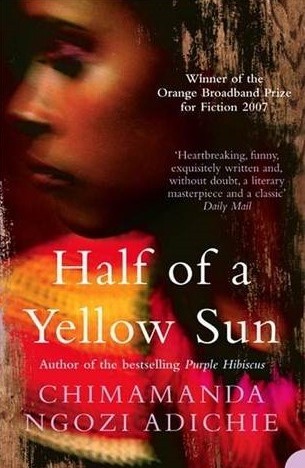
(via Half of a Yellow Sun by Chimamanda Ngozi Adichie)
Half of a Yellow Sun is a novel by Chimamanda Ngozi Adichie on Nigeria in the 1960s. It vividly portrays the struggles and tensions of the society in a nation that had barely started breathing in its nascent independence. The British had just left in 1960 leaving the country to be governed by its own people. However, the citizens are not united; there is a wide rift between the Northern and Southern regions as is often the case with almost any north-south geography. The North has tribes, mainly Hausa, Yoruba and the like, while the South and the East are predominantly Igbo people. The differences between the two communities are starkly pronounced.
Odenigbo and his partner Olanna are Igbos and teach in the Nsukka University in the South. Olanna’s sister Kainene oversees her father’s businesses in Port Harcourt, and lives with her English lover Richard who has come to Nigeria to research heritage arts, particularly Igbo-Ukwu art. The sisters come from an affluent family living in the richest area of Lagos, the largest city of Nigeria. Additionally, we meet Ugwu, Odenigbo’s houseboy, who initially appears insignificant, but keeps the plot moving as the author narrates the story in many places by describing the thoughts going on in his head tracing his observations and convi... (Read full text on booksperience.org)
#books#reading#chimamanda ngozi adichie#africa#african history#biafra#civil war#fiction#half of a yellow sun#hausa#history#igbo#kainene#nigeria#nigerian history#odenigbo#olanna#tribal sentiments#tribes#ugwu#yoruba#booksperience
1 note
·
View note
Text
And people keep trying to justify Israel's existence on the basis that it is somehow a safe place for the preservation of Jewish people and their culture and not only is that an awful argument for establishing a Settler Colonist Apartheid State but it's not even true. Like the state is politically and economically dominated by Ashkenazi Jews from Northern Europe and their descendants. While not as severely mistreated as Palestinians, there is still a significant disparity between the European and Non-European Jews in terms of income and education. Non-European Jews are still regularly subject to interpersonal bigotry (hell earlier this year there was a news story about a viral video where Ashkenazi girls in a Purim made a skit mocking the Mizrahi) and Israel government policies towards non-Ashkenazi migrants have done severe damage to their social structure and cultural traditions. Not to mention the fact that the whole reason why many Mizrahi migrated in the first place was to escape the violence caused by European Jews committing atrocities in their name, tearing communities apart as neighbours that had peacefully co-existed for centuries found themselves on opposite sides of this new ethno-religious conflict
There have even been attempts in Israeli history at the forceful assimilation or even biological reduction of non-European Jews; the kidnapping and adoption of Yemeni Jewish children in the 1950s is significant example of the former while the forced contraception of Beta Israeli (Ethiopean Jewish migrants) with the explicit intention of reducing their population's birth rate is an example of the latter. There's also very clear favouritism when it comes to recent converts; white Afrikaner converts are given the right of Aliyah while Nigerian Igbos are not. Like the fact of the matter is that Israel's fundamental nature is as a European Settler Colony, incredibly racist not only towards the indigenous Palestinians but the many Non-European Jews it claims to represent. It's an outpost of Western Imperialism, not a haven for the Jewish people. If it was ever meant to be the latter than it has failed miserably
6K notes
·
View notes
Text

I devoured this book in 2 sittings, it's been a while since one of these... I knew it would mean something the moment I read the name of our protagonist; Obiefuna. As an Obiefule, it felt like I was being directly written to. Chukwuebuka is a writer I hear my own story in. A queer novel set in Nigeria will never be free from violence, I could argue that no Nigerian story is... Yet Chukwuebuka applies a tenderness to this story, we find balance between love and pain. The passion carried me past the traumas. I also love that one of Obiefuna's greatest love is his mother. I love that we get peeks into history asides from the contemporary; we briefly meet a queer village drummer that affirms Obiefuna's life through the memory of his mother. I love the huge portion of the story being set in boarding school, I remember my own times and know that I will also come to tell my stories of the horrors so beautyfully entangled with pleasure, life, collectivity and redemption. Blessings, I feel an Igbo pride at the heritage of our pen, and to know Chukwuebuka is of my generation only reaffirms of a new future very very present to our now.
49 notes
·
View notes
Text
Chidi Anagonye was raised in Senegal
As Kamilah tells us in season 3, "Chidi" is an Igbo word meaning "God exists" (double checked with Behind the Name)
Chidi's father, Emeka, also has an Igbo Name
The Igbo people are from Nigeria
Nigeria is not close to Senegal. They are about 2,500km/1,550mi apart.
According to Wikipedia, there is not a significant Igbo population in Senegal
Chidi's mother, Ndeye, does have a Senegalese name. (x) (x) (x) (it's not on Behind the Name but several other websites agree that is from the Wolof language in Senegal, so... here's hoping they're right)
Ok so now I have SO many questions about Chidi's family. Did Emeka immigrate to Senegal? Why Senegal? Chidi's birth year is set to about 1982/1983, and the Nigerian government was having crisis after crisis at the time. Colonialism looms large over this entire story for obvious reasons. Nigeria gained independence in 1954, and Senegal in 1959. Nigeria had two coups in 1966, followed by civil war from 1967-1970. There was an oil boom in the 1970s, but obviously the people did not see much of the profits from that as the military government had no interest in raising the standard of living. There was another coup in 1975, and then another in 1976. From the early 80s to 1999, the Nigerian government was a corrupt military dictatorship before democracy was reinstated (x).
In comparison, Senegal had a much more consistent government committed to democracy, diplomacy, and human rights. There was violent conflict and border tensions, but broadly things were more stable, and Wikipedia claims Senegal had "one of the more successful post-colonial democratic transitions in Africa" (x).
All this stuff could never be explored in the show for obvious reasons: it's a comedy (showrun by a white man and made almost entirely by Americans), but I'm still left wondering about it. What was it like for Emeka to move so far away from home? What was it like for Chidi to grow up both Wolof and Igbo, with an Igbo name? How did Emeka keep him in touch with his roots that were thousands and thousands of miles away, or did he encourage assimilation instead? Was this challenging at all for Chidi, growing up?
Also, and I'm going to preface this by saying I am in no position to write this arc/plotline, but I think there's something to be said here, and it could've fit really well into the story if there were west African writers in the writers room who wanted to explore this. Chidi's whole thing is about choice, and he is someone from two different cultures. They could've written a story about Chidi learning not to see himself as two separate halves, but one whole person. But tbh? I don't think they cared to. I'm not sure how much of this is intentional, how much of this implied story of an immigrant leaving his home for greener pastures, falling in love with a woman, and having a baby who then finds making a choice between two things the biggest challenge in the world was intentional, versus how much they just googled "African names." I know Chidi's name is somewhat intentional, given how they explicitly bring up its etymology in season 3, but do they care that the Igbo people are not from or in Senegal? They did seem to forget that Chidi says his native language is French in season 1. Plus they are sorta forced to gloss over the fact that Chidi's actor is American and has an American accent. Or maybe this was 100% intentional and hidden in there for people who either know all of this already or bother to google stuff. I don't know. I just remembered that the Igbo people are from Nigeria and Chidi has an Igbo name, and was pretty sure Chidi didn't say he was Nigerian, so I googled him and went to his fandom wiki page and fell down the rabbit hole from there.
(I am not west African nor do I know much about the histories and cultures of west Africa, so all my sources have been linked in this post, which were Wikipedia and name websites, my apologies if there are any errors in this post, and if there are, please feel free to correct me.)
13 notes
·
View notes
Text
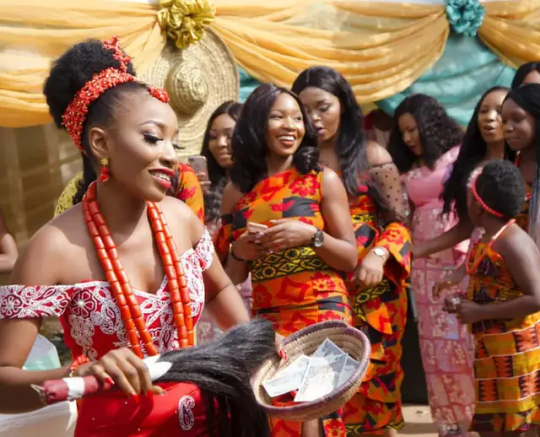
HISTORICAL IGBO TIMELINES:
STONE AGE -MIDDLE AGES.
This is the period dating 1.2million years to 3000BC , the era of homo-erectus found within the areas of ugwuele uturu following the discovery of Archeolean hand axes and stone tools in caves. Clay pots dating 3000BC were recovered at Afikpo and Opi iron slags .Details of this era is buried in archeology .
EARLY HISTORY:
8th-9 th AD : Kingdom of Nri begins with Eze Nri Ìfikuánim.
1434 AD: Portuguese explorers make contact with the Igbo.
1630 AD : The Aro-Ibibio Wars start.
1690AD: The Aro Confederacy is established
1745AD : Olaudah Equiano is born in Essaka, but later kidnapped and shipped to Barbados and sold as a slave in 1765.
1797AD : Olaudah Equiano dies in England as a freed slave.
1807 AD : The Slave Trade Act 1807 is passed (on 25 March) helping in stopping the transportation of enslaved Africans, including Igbo people, to the Americas. Atlantic slave trade exports an estimated total of 1.4 million Igbo people across the Middle Passage
1830 AD : European explorers explore the course of the Lower Niger and meet the Northern Igbo.
1835 AD: Africanus Horton is born to Igbo ex-slaves in Sierra Leone
1855 AD: William Balfour Baikie a Scottish naval physician, reaches Niger Igboland.
MODERN HISTORY:
1880–1905: Southern Nigeria is conquered by the British, including Igboland.
1885–1906: Christian missionary presence in Igboland.
1891: King Ja Ja of Opobo dies in exile, but his corpse is brought back to Nigeria for burial.
1896–1906: Around 6,000 Igbo children attend mission schools.
1901–1902: The Aro Confederacy declines after the Anglo-Aro war.
1902: The Aro-Ibibio Wars end.
1906: Igboland becomes part of Southern Nigeria (the beginning of our problem)
1914: Northern Nigeria and Southern Nigeria are amalgamated to form Nigeria. (escalation of our problem)
1929: Igbo Women's War (first Nigerian feminist movement) of 1929 in Aba.
1953: November Anti Igbo riots (killing over 50 Igbos in Kano) of 1953 in Kano
1960: October 1 Nigeria gains independence from Britain; Tafawa Balewa becomes Prime Minister, and Nnamdi Azikiwe becomes President.
1966: January 16 A coup by junior military officers takes over government and assassinated some country leaders. The Federal Military Government is formed, with General Johnson Aguiyi-Ironsi as the Head of State and Supreme Commander of the Federal Republic.
1966: July 29 A counter-coup by military officers of northern extraction, deposes the Federal Military Government; General Johnson Aguiyi-Ironsi is assassinated along with Adekunle Fajuyi, Military Governor of Western Region. General Yakubu Gowon becomes Head of State.
1967: Ethnoreligious violence between Igbo Christians, and Hausa/Fulani Muslims in Eastern and Northern Nigeria, triggers a migration of the Igbo back to the East.
1967: May 30 General Emeka Ojukwu, Military Governor of Eastern Nigeria, declares his province an independent republic called Biafra, and the Nigerian Civil War or Nigerian-Biafran War ensues.
1970: January 8 General Emeka Ojukwu flees into exile; His deputy Philip Effiong becomes acting President of Biafra.
1970: January 15 Acting President of Biafra Philip Effiong surrenders to Nigerian forces through future President of Nigeria, Olusegun Obasanjo, and Biafra is reintegrated into Nigeria.
References:
Understanding 'Things Fall Apart' by Kalu Ogbaa
Wikipedia
Image Credit: Ukpuru, Pinterest
#kalu#ogbaa#nigerian#ojukwu#emeka#biafra#fulani#hausa#igbos#igbo#nigerian history#igbo history#essaka#africanus horton#african#afrakan#kemetic dreams#africans#afrakans#brownskin#brown skin#african culture
11 notes
·
View notes
Text
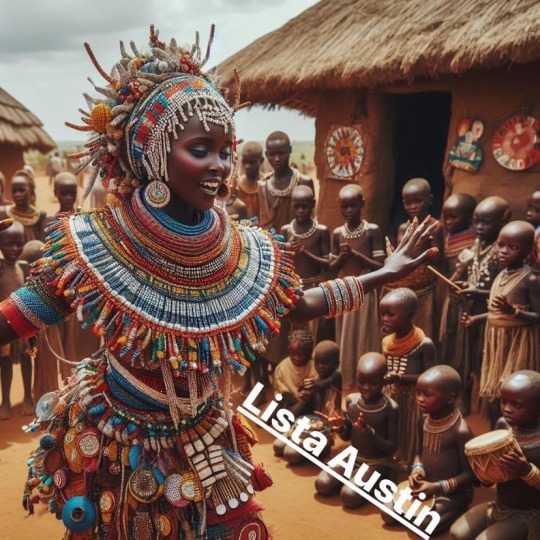
TOP 10 AFRICAN TRIBES/ETHNIC GROUPS THAT ARE GLOBALLY KNOWN.
(In no particular order)
1) Zulu ?? South Africa – The Zulu tribe is popular outside Africa. They’ve been featured in music, documentaries and movies. Shaka the Zulu was a warrior king whose popularity is well spread. Famous Zulus, Lucky Dube, Nasty C, black Coffee etc.
2) Yoruba ?? Nigeria – The Yorubas are globally known for their history, culture, art and literature. Fela, Wole Soyinka, Wizkid, Davido, Tiwa Savage, David Oyelowo, John Boyega, Anthony Joshua etc are a few Yorubas who have taken their culture to the world. The Yoruba culture has been featured in many Hollywood movies.
3) Masai ?? Kenya – The Masai are perhaps one of the most documented tribes in Africa, with alot of documentaries shown about them and books written about their culture.
They are known for their traditional clothing and hunting skills
4) Hausa ?? Nigeria – The hausas are very popular. Often known as the Igbos of the North, The richest black man in the world Aliko Dangote is Hausa along with his brother from the same state Kano Abdulsamad Rabiu (BUA). Their culture has also been well written about and have featured in a few Hollywood movies including the Amazon prime series were a woman was seen eating Tuwo shinkafa.
5) Igbo ?? Nigeria – The Igbos are undeniably known world wide. Chinua Achebe wrote about the Igbo culture alot. They are known for their history, culture and literature.
The popularized the kolanut and palm wine through books, movies and music
Chinwetalu Ejiofor, Zain Asher, Ckay, Flavour, Chimamanda, phyno, P-square are Igbos who have taken their culture to the world. Igbo are known in Nollywood movies.
6) Swahili ?? Tanzania – This tribe have phenomenal spread their language in East Africa and a few central African nations.
In the 70s, their language was part of the African-American black pride movement been pushed forward.
7) Edo/Bini ?? Nigeria – The Binis are perhaps the culture in Africa with the most famous artworks outside Egypt.
Binis are known for their history, culture and art/architecture.
The famous Benin bronze, ivory and brass artworks are known globally. The country Benin republic gets their name from them. Benin art and culture have been featured in Hollywood movies including black panther. Many Nigerian cultures have roots in Benin. The bronze mask of Queen Idia is perhaps the most famous mask in Africa and one of the most famous in the world. Popular Edos are Kamaru Usman, Rema, Odion Jude Ighalo, Victor Osimhen, Dave, Sam Loco Efe etc.
Asante Ghana – This tribe are known for their history and culture. Popular American hip hop artist was named after this tribe Asante. Their Kente is perhaps the most popular African attire outside of Africa and were known to be masters of the gold craft.
9) The Fulani – This nomadic tribes are known for their history and culture. They are predominantly in West Africa and are found in 18 African countries. Most In Nigeria ??
Popular Fulanis or people with Fulani ancestry are Muhammadu and Aisha Buhari, Tafawa Balewa,
10) Berbers/Amazigh – They are predominantly found in North Africa. They are predominantly found in Morocco ?? and Algeria ?? They known for their use of silver silver. Their culture and history well documented and have a unique language and writing system that traces back to ancient Egypt. Books are currently being written about them including a book titled salt by Haitian-American Pascaline Brodeur.
Disclaimer: Every African tribe and culture is beautiful, unique and important. No one culture is more important than the other. This only highlights tribes known outside the continent overall, this doesn’t mean there aren’t other cultures that aren’t known.
PLEASE YOU CAN ADD AND TELL US ABOUT YOUR TRIBE.
47 notes
·
View notes
Quote
Yes. But everything in Nigeria is about haunting. It’s about ghosts. The dead are everywhere, and just won’t stay dead. In my Igbo culture, dead parents used to be buried in the middle of the living room and not in cemeteries. So in this way the dead are always there, to guide us, to teach us. I grew up around domestic graves and you couldn’t have a drink without offering them libation. So the dead informed everything that the living did. They are in many ways our way of mediating self and history, partly because there’s a real existential loss at the heart of what it means to be Nigerian, because three or four hundred years ago much of the culture was interrupted when the Portuguese arrived and began to deal in enslavement. What happens is that from that time on, Nigerian culture begins to cede itself to the invader, to this invasion of otherness. So even now in Nigeria, when we talk about “our culture,” there’s a certain Victorianness about what we think our culture is, which actually comes from Victorian England’s colonial presence. It’s that way in which all of our “selves” are built around ghosts, and sadly, mostly violent ghosts, malevolent ghosts. In GraceLand and Becoming Abigail, the mothers are dead and in a new book, The Virgin of Flames, the father’s dead. So the body of becoming is often an absence made more present by its haunting, by the ectoplasmic residue. In my books, the dead return as text, as skin (diaries and maps), as inscriptions that act as the medium, the way to visit the ghostly places of self and yet return safely. So much of the ectoplasm of these ghosts is patriarchy and masculinity. My work asks if it is possible, if this absence, this malevolent place, can enfold and nurture and be reclaimed through prose and poetry, to turn into possibility. For me it’s alchemy.
Chris Abani
Betsy Sussler - Bomb: The Author Interviews (2014)
109 notes
·
View notes
Text
It's worth the double emphasis that the Nigerian Civil War was seen as a Jihad from the perspective of Lagos:
As with the Boko Haram insurgency, one cannot neatly sever Islam from events run by Muslim fundamentalists who reach for the rifle and enforce rule by terror. To do so is dishonest and cowardly, and to neglect that this is also a ready recourse in Muslim states now as in the past and then the actual conduct is rather more banal and tepid than that is also dishonest and cowardly.
Either way the history of Nigeria includes yet another major persecution of the Igbo and good example of what the British Empire REALLY left behind it and how gleefully it was willing to do so. European concepts of nationalism led to gruesome horrors in Europe and their mirrors in other parts of the world have also done so there.
So is it that this intertwined with the concept of the Jihad in this war.
#lightdancer comments on history#black history month#nigerian history#african history#igbo history#hausa history
0 notes
Text

History. The first Yoruba people who arrived to the United States were imported as slaves from Nigeria and Benin during the Atlantic slave trade. This ethnicity of the slaves was one of the main origins of present-day Nigerians who arrived to the United States, along with the Igbo.
2 notes
·
View notes